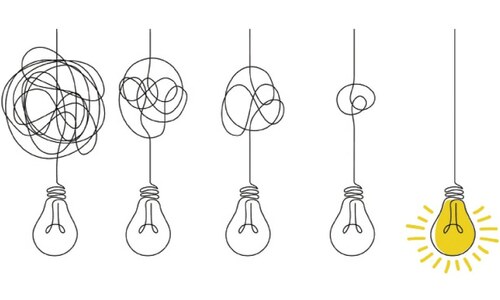HYDERABAD: Environmentalists at a consultative meeting called for cost-effective and environment-friendly electricity to be provided to people to save them from the hazards being created by hydel power projects.
The meeting on ‘Indicative Generation Capacity Expansion Plan (IGCEP)’ was held on Monday in a local hotel under the aegis of the Alliance for Climate Justice and Clean Energy. The alliance consists of environmental activists, members of research institutions, volunteers of non-governmental organisations etc.
It urged government to provide cheap and environment-friendly energy to people instead of the expensive electricity generated from hazardous sources.
The programme was also attended by activists from among the people affected by power projects in Karachi, Thatta, Jhimpir, Badin, Sujawal, Taunsa, Dasu and Tarbela, as well as civil society activists and academia.
Activists criticise capacity payment to IPPs
They expressed their concerns over unjust and unrealistic planning of IGCEP and non-inclusive power projects.
Zain Moulvi from the Alternative Law Collective talked about plan, saying that the National Transmission and Dispatch Company (NTDC) recently released the third edition of IGCEP which would acquire official status after approval from the National Electric Power Regulatory Authority (Nepra).
The plan, first prepared a few years ago with financial assistance from World Bank, is revised every two years to incorporate anticipated changes in electricity demand and advancements in generation technology, according to him.
He said its primary purpose was to identify and utilise cheapest sources of electricity generation. However, he noted, the latest edition of IGCEP overlooked need for cheap electricity generation, prioritising large projects based on fossil fuels (including coal, oil, and gas) and hydroelectric power.
He stated that the current IGCE plan would not only increase electricity prices but also devastate natural environment, affecting river flow, contaminating groundwater and polluting the air. He said that such projects had displaced local people from their homes, lands and sources of income, forcing them into destitution, as seen in Thar, Tarbela and other areas.
The meeting observed that Sindh was blessed with renewable resources due to strong winds in its southern districts and almost year-round sunlight. But Sindh and Balochistan were neglected in wind and solar projects.
Presence of projects in the latest edition of IGCE plan that harm public, environmental and economic interests indicates that policymakers in Islamabad are indifferent to impacts on people living in most underdeveloped areas such as Indus delta.
The meeting said that solar electricity generation on rooftops is financially out of reach of majority of people. Electricity is unavailable without hassle and per-unit cost of electricity is 40pc i.e. costlier than in India. It is unavailable in around 35pc areas.
The meeting said that Nepra increased electricity prices multiple times. IGCE plan aims to provide electricity at lower rates without harming environment and prioritising solar, wind and bagasse produced power. However, over 50pc of electricity is generated from hydro and fuel with only 19pc is produced from renewable sources.
The meeting called for focusing cheap sources of electricity, such as solar and wind. Hydropower is 40pc to 60pc more expensive and affects rivers yet it was prioritised in the IGCE plan.
Noor Bajeer from Civil Society Support Program, Saeed Baloch from Pakistan Fisherfolk Forum and Obhayo Junejo from Thar also spoke.
The meeting criticised capacity payments to Independent Power Producers (IPPs) for electricity not being generated thus making electricity costly for consumers.
Published in Dawn, July 23rd, 2024












































Dear visitor, the comments section is undergoing an overhaul and will return soon.